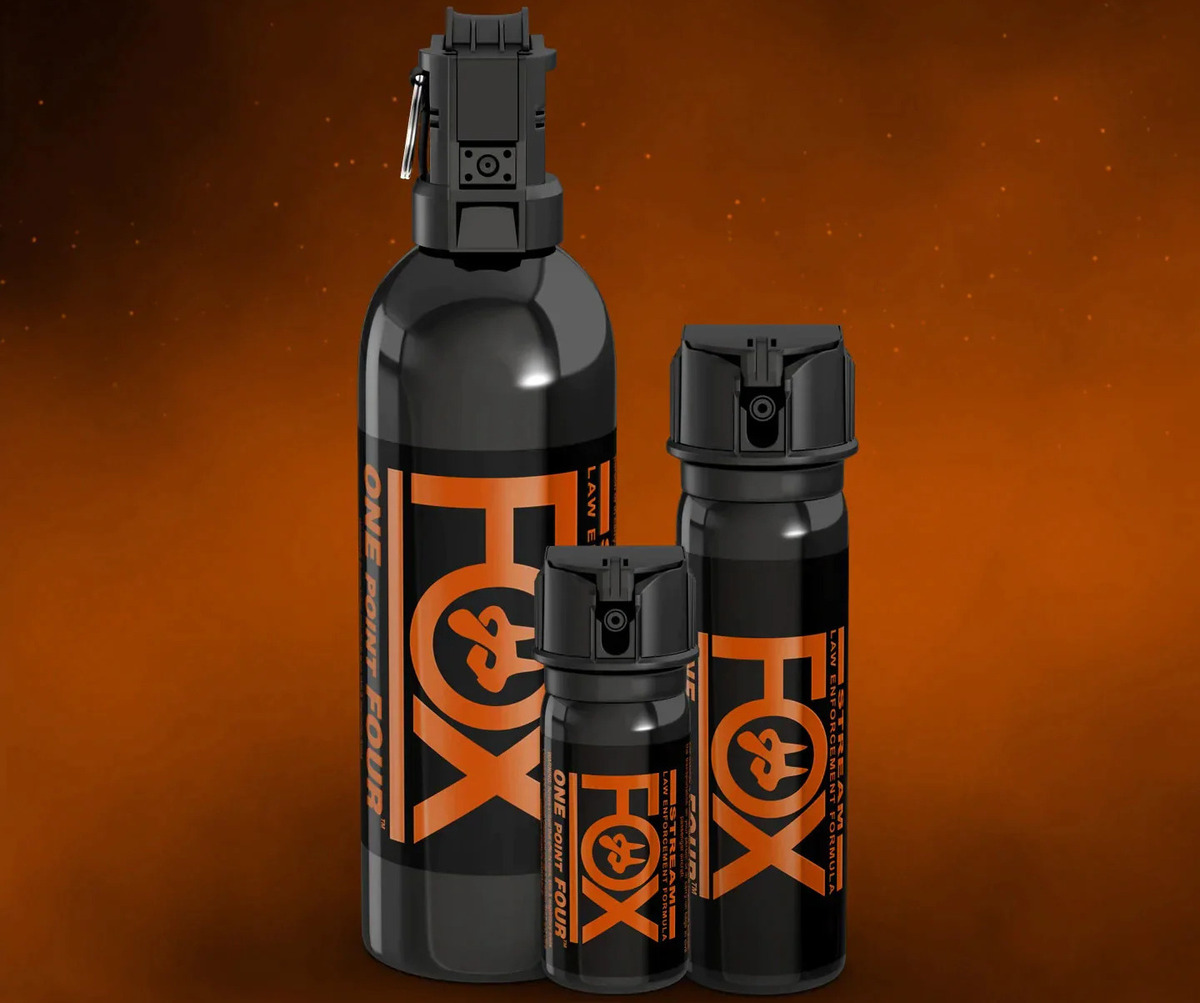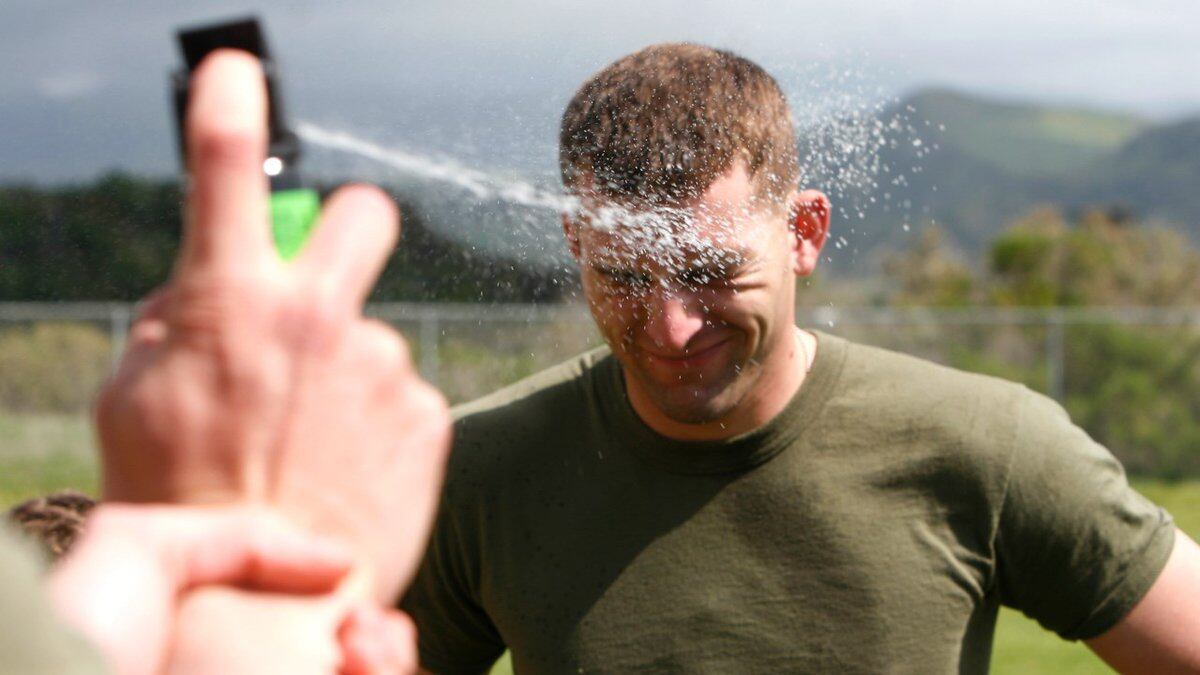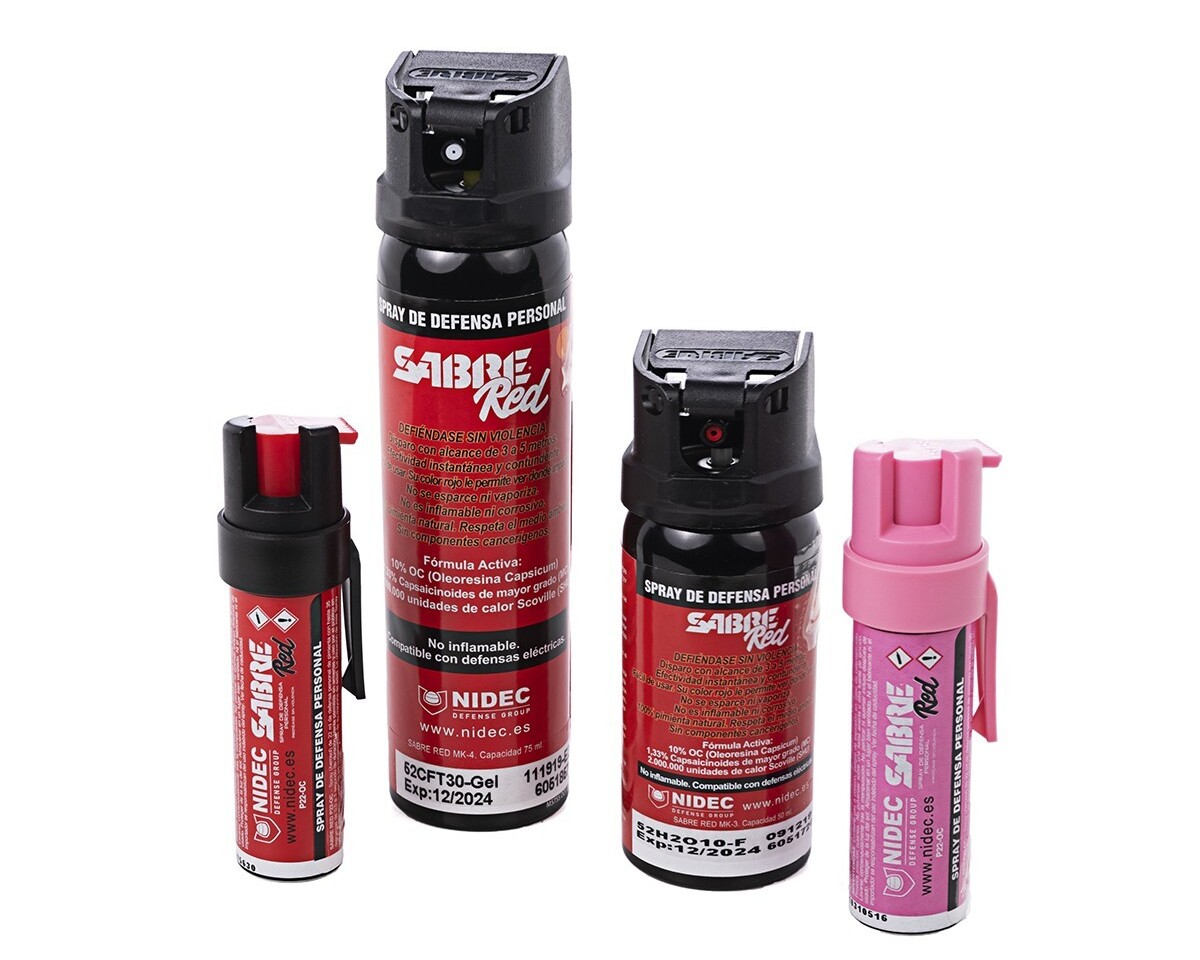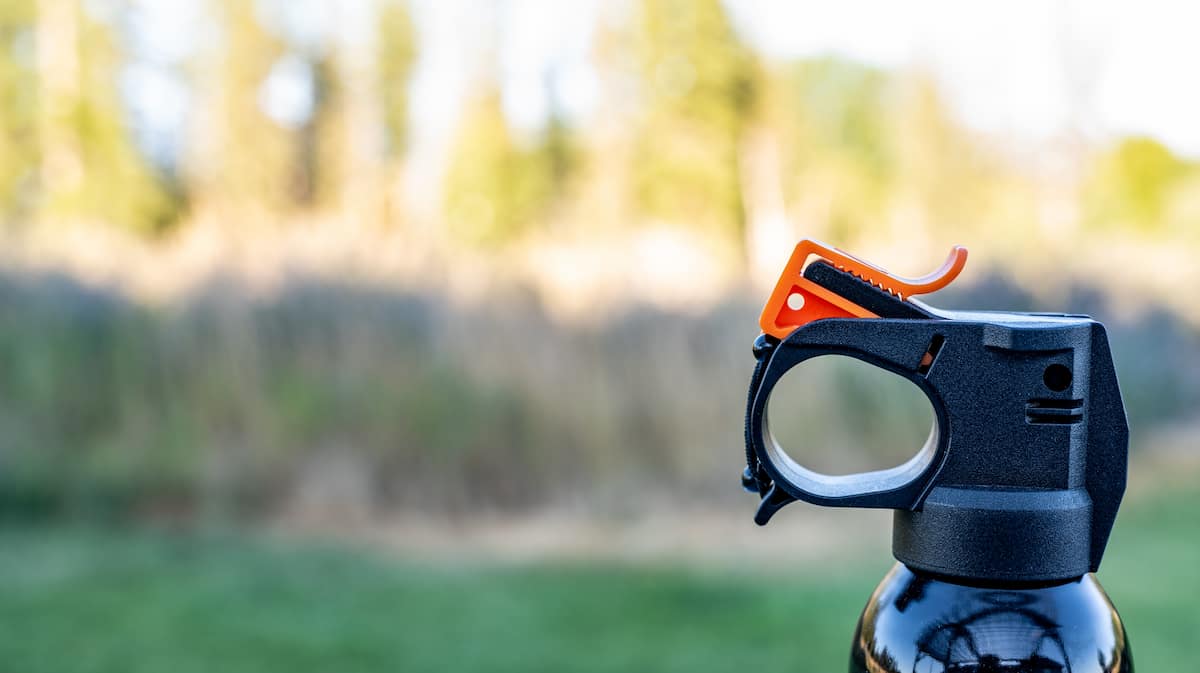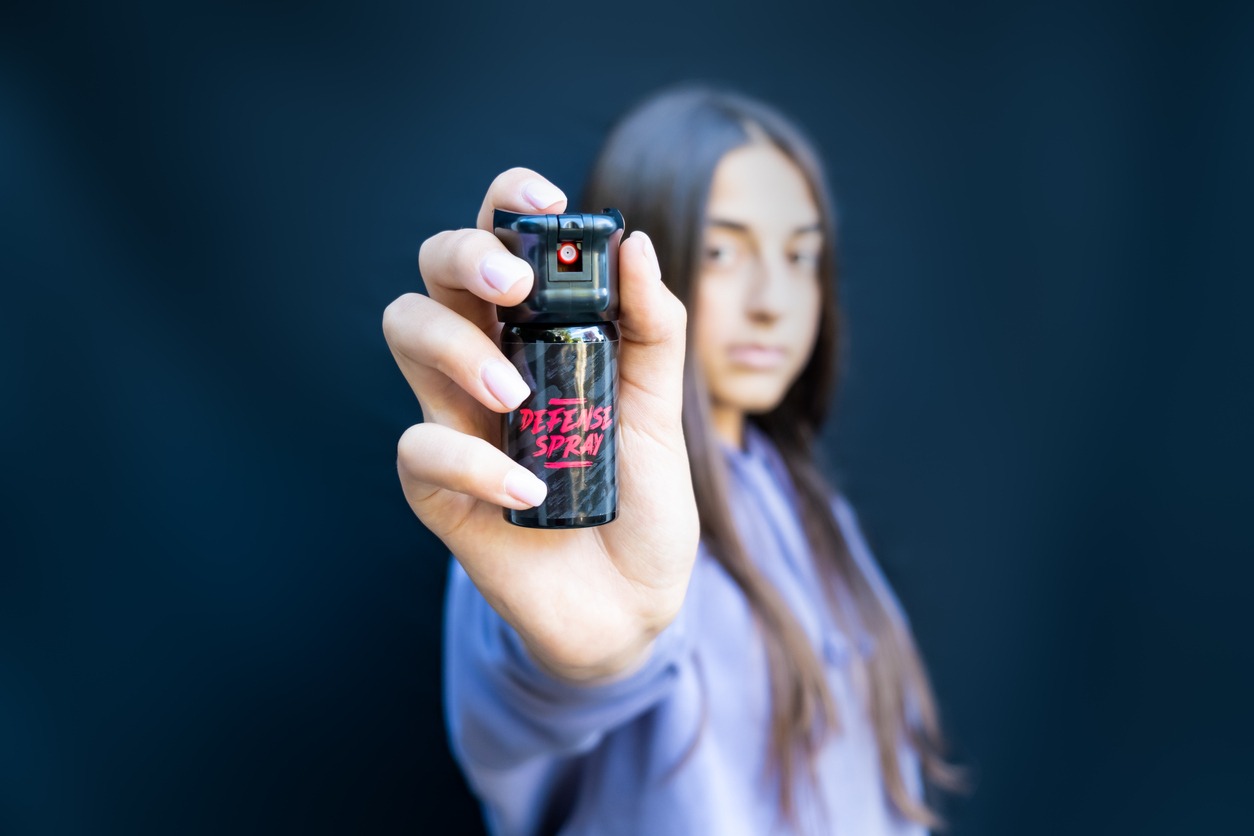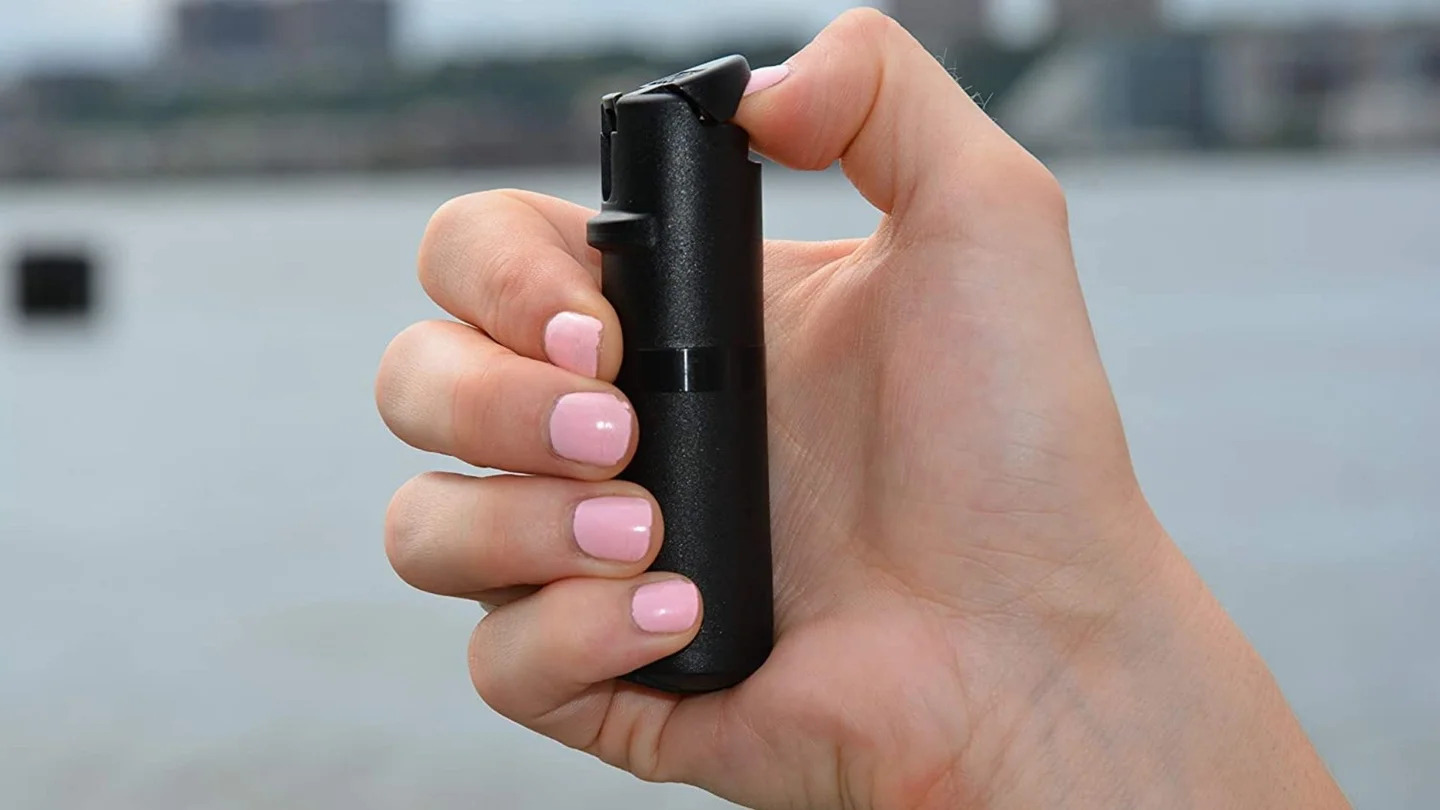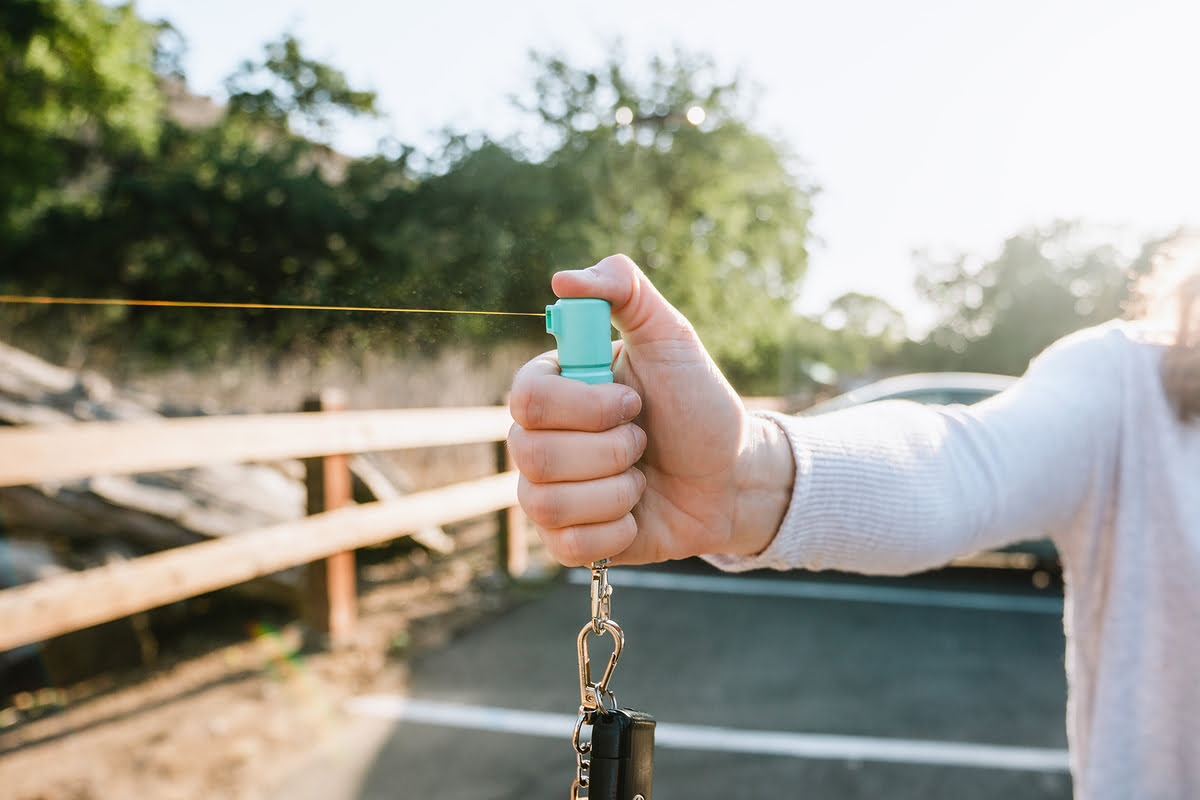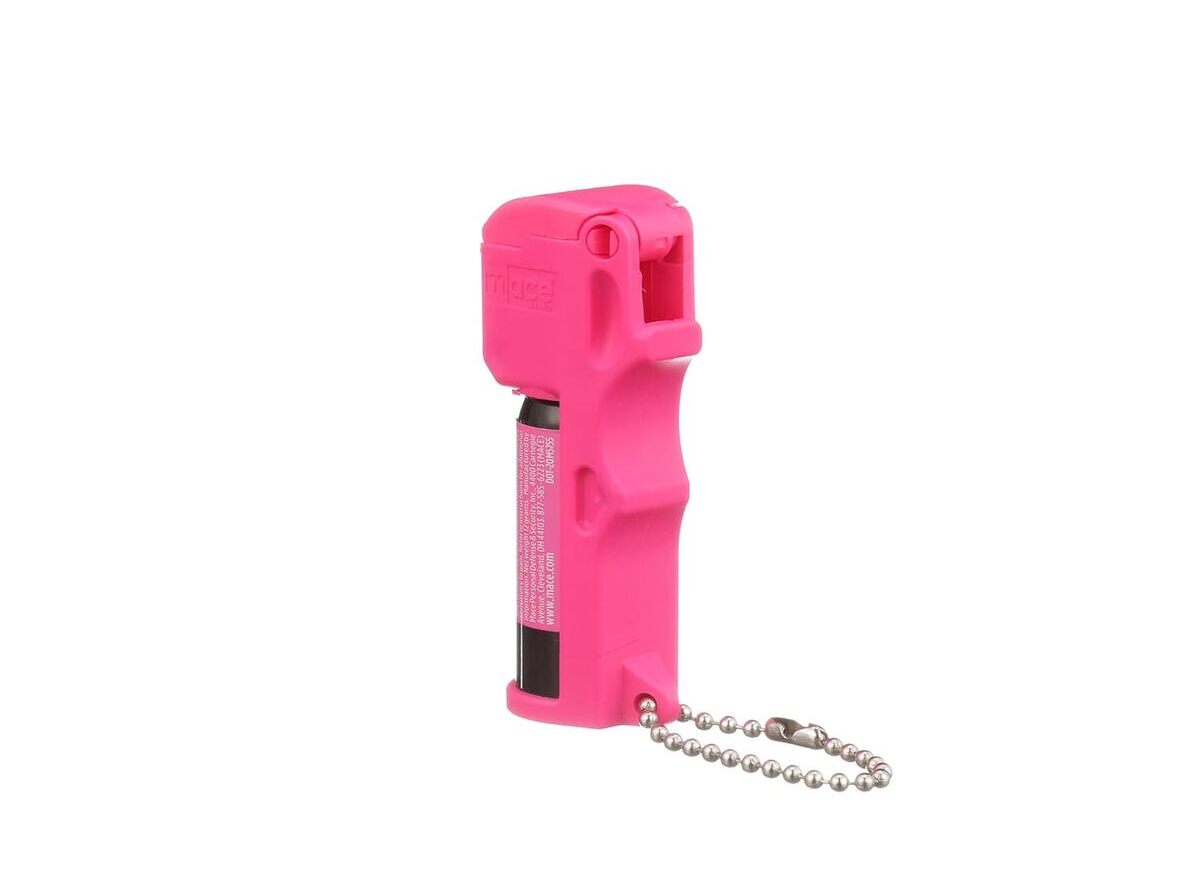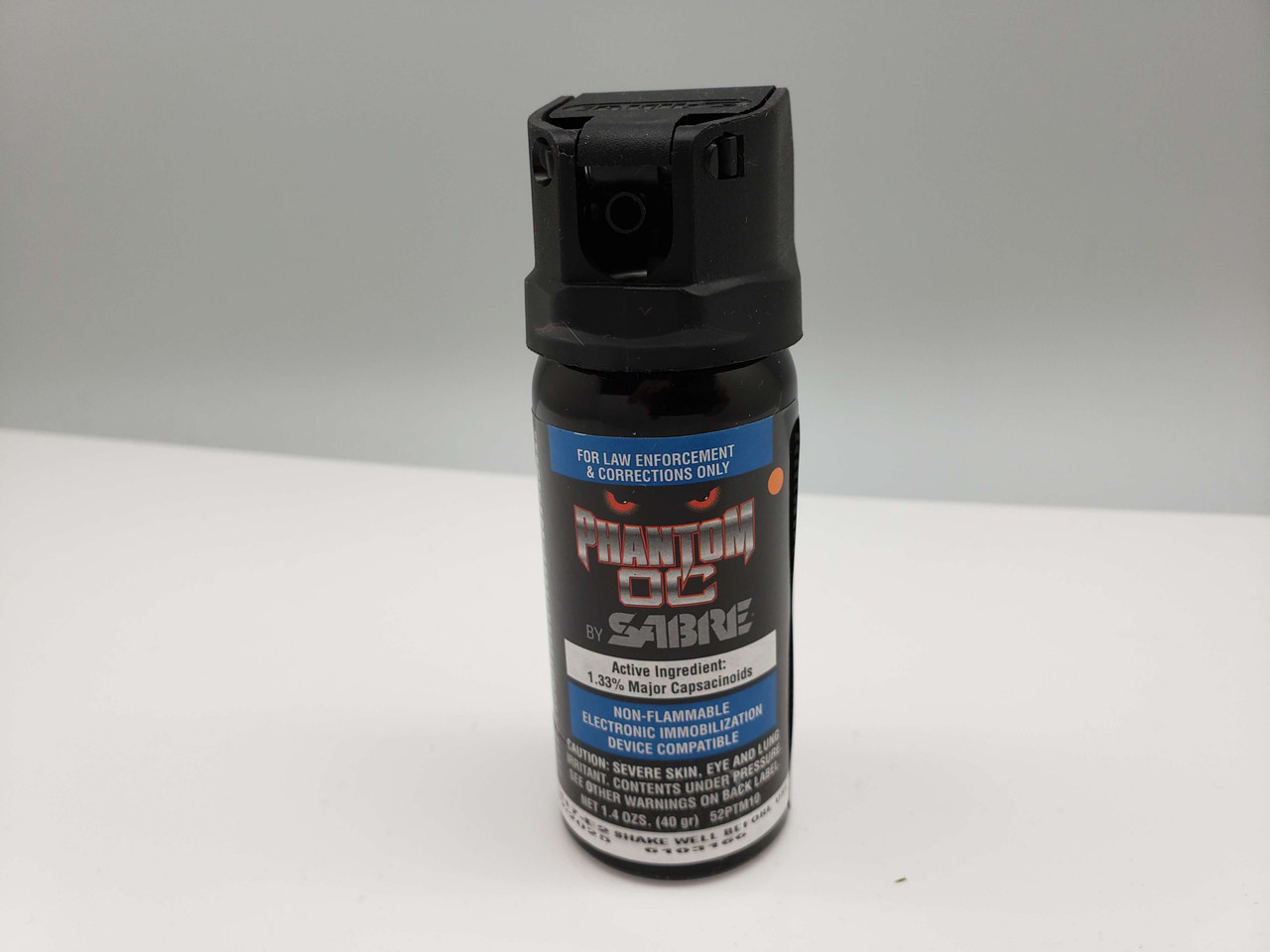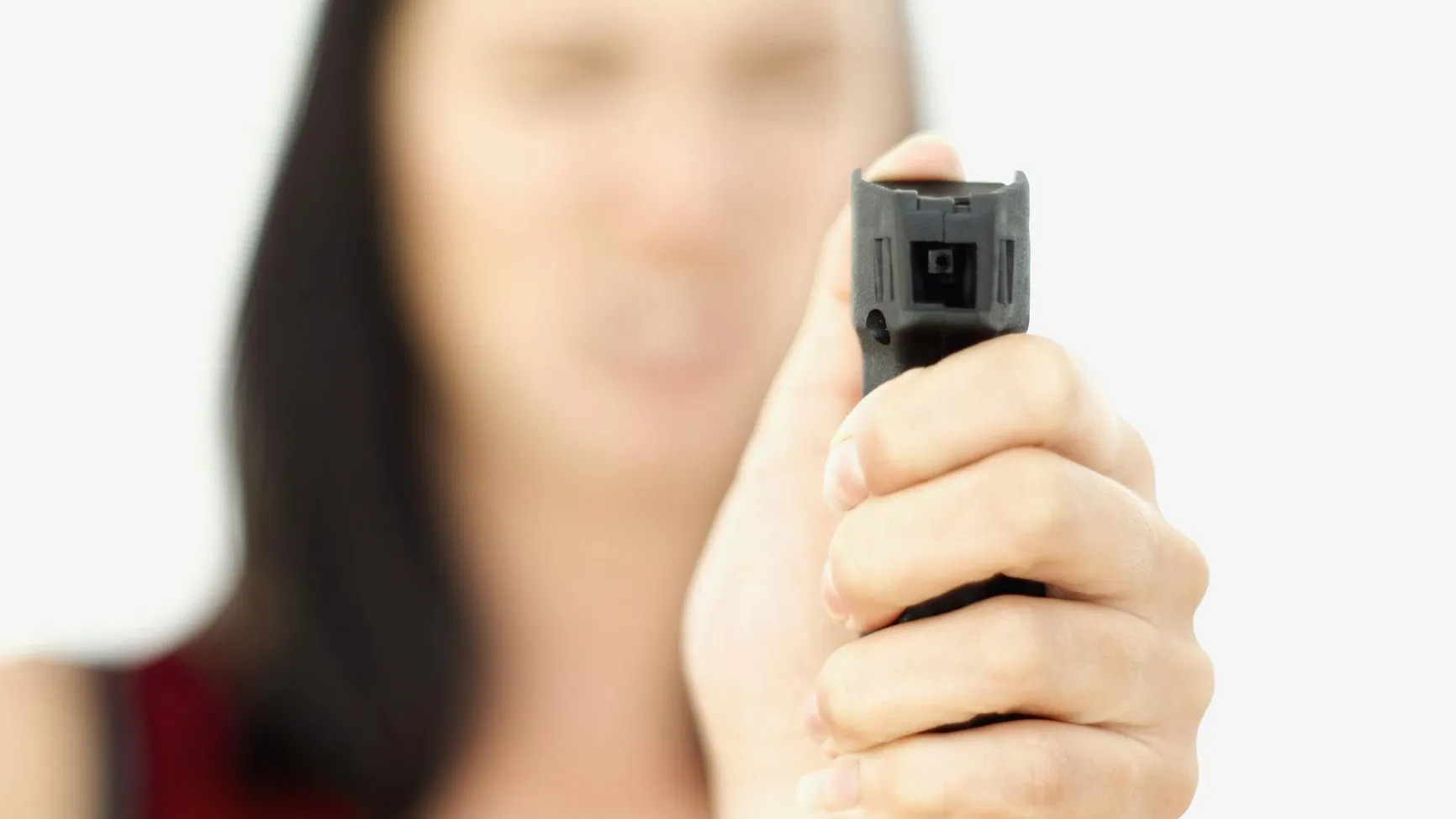Home>Home Security and Surveillance>What Helps Relieve Pepper Spray
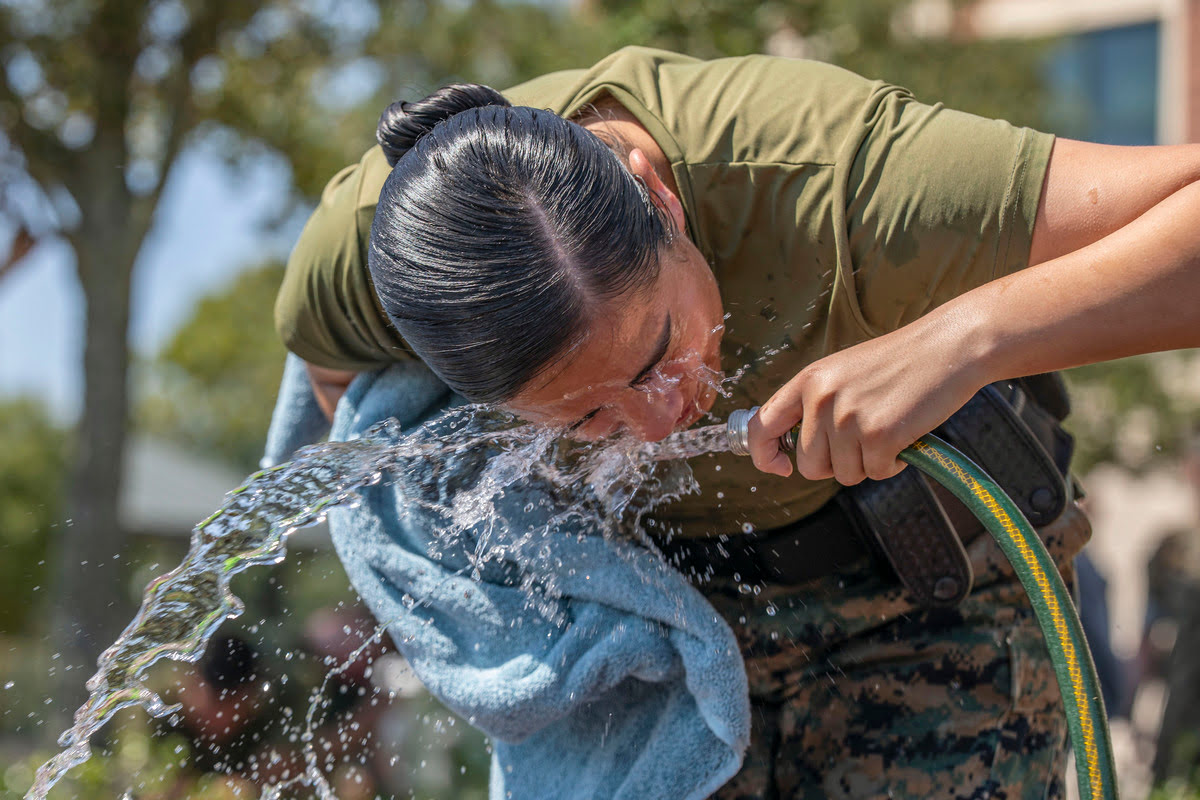

Home Security and Surveillance
What Helps Relieve Pepper Spray
Modified: August 17, 2024
Looking for effective ways to relieve pepper spray? Explore our home security and surveillance solutions for immediate relief and peace of mind.
(Many of the links in this article redirect to a specific reviewed product. Your purchase of these products through affiliate links helps to generate commission for Storables.com, at no extra cost. Learn more)
Introduction
Pepper spray is a commonly used self-defense weapon that can temporarily incapacitate an attacker. It is made from the extract of the cayenne pepper and contains a compound called capsaicin. When sprayed on an individual, it causes a burning sensation, severe irritation, and inflammation of the skin, eyes, and respiratory system. While pepper spray can be an effective tool for personal safety, it’s important to know how to alleviate its effects if you or someone you know has been exposed to it.
In this article, we will explore various methods and remedies that can help relieve the discomfort caused by pepper spray exposure. Whether you accidentally sprayed yourself or encountered pepper spray during a protest or demonstration, these techniques can provide immediate relief and promote healing.
Key Takeaways:
- Pepper spray, made from cayenne pepper, causes intense burning and irritation. Immediate relief methods include rinsing with water, blinking rapidly, and moving to fresh air.
- Home remedies like milk, aloe vera, and cool compresses can provide relief from pepper spray exposure. Seek medical attention for severe or persistent symptoms.
Read more: What Is Pepper Spray
What is Pepper Spray?
Pepper spray, also known as OC spray (oleoresin capsicum), is a non-lethal self-defense tool that is widely used for personal protection. It is a chemical compound derived from the fruits of hot chili peppers, particularly cayenne peppers. The active ingredient in pepper spray is capsaicin, a natural irritant that causes intense burning and pain when it comes into contact with skin, eyes, and mucous membranes.
Pepper spray is typically contained in small aerosol cans that can be easily carried in a pocket or purse. It is designed to emit a fine mist or stream when sprayed, allowing the user to aim for the attacker’s face or eyes. When the spray makes contact, it instantly irritates the eyes, causing involuntary closure, watery discharge, and impaired vision. It also affects the respiratory system, causing coughing, choking, and difficulty breathing.
One of the key advantages of pepper spray is its simplicity and ease of use. It doesn’t require any special training and can be used effectively by people of all ages and physical abilities. However, it’s important to note that pepper spray is not legal in all jurisdictions, and regulations regarding its use can vary. It is crucial to familiarize yourself with the laws in your area before purchasing or using pepper spray.
Pepper spray is commonly carried by individuals who want to feel empowered and secure in potentially dangerous situations. It provides a reliable means of self-defense, allowing the user to incapacitate an attacker temporarily and escape to safety. The effects of pepper spray typically last for 30 minutes to an hour, providing enough time to seek help or flee from the threat.
It’s important to remember that pepper spray is intended for self-defense purposes only and should not be used to intentionally harm others unless in a situation of self-defense. Understanding the nature and effects of pepper spray can help you make informed decisions about your personal safety and equip you with the knowledge to deal with its effects if exposure occurs.
Effects of Pepper Spray
Pepper spray is known for its potent effects on the human body. When exposed to pepper spray, the following physiological responses can occur:
- Burning and Irritation: Pepper spray causes an intense burning sensation on the skin, particularly in areas where it comes in direct contact. This burning sensation can be unpleasant and may last for several minutes or even hours.
- Eye Irritation: One of the most notable effects of pepper spray is its impact on the eyes. Upon contact, the capsaicin in the spray causes severe irritation, leading to redness, swelling, tearing, and temporary blindness. This can greatly impede the attacker’s ability to see clearly and disorient them.
- Respiratory Distress: Inhaling pepper spray can lead to respiratory distress. It irritates the airways, causing coughing, wheezing, shortness of breath, and even temporary paralysis of the respiratory muscles. This can be particularly alarming and may cause panic in the affected individual.
- Inflammatory Response: Pepper spray triggers an inflammatory response in the body. This results in swelling and inflammation of the affected areas, making them tender to the touch. The inflammatory response can last for several hours or even days, depending on the severity of the exposure.
- Pain and Discomfort: Pepper spray can cause intense pain and discomfort, making it extremely challenging for the attacker to continue their aggressive behavior. The pain is often described as a burning sensation that can be excruciating, causing significant discomfort and hindering movement.
It is important to note that the effects of pepper spray can vary depending on the individual’s sensitivity, the concentration of the spray, and the duration of exposure. Some people may experience more severe reactions than others. Additionally, factors such as pre-existing medical conditions and the use of certain medications can also influence the body’s response to pepper spray.
It’s crucial to treat pepper spray exposure seriously and take appropriate steps to minimize its effects. In the following sections, we will explore various remedies and techniques that can provide immediate relief and aid in the recovery process.
Immediate Relief Remedies
If you or someone you know has been exposed to pepper spray, it’s essential to take immediate action to alleviate the discomfort. Here are some remedies that can provide immediate relief:
- Move to Fresh Air: If you are indoors, quickly move to an area with fresh air to minimize exposure to the pepper spray particles. Open windows and doors to allow for better ventilation.
- Don’t Rub or Touch: Avoid rubbing or touching the affected areas, as this can spread the capsaicin and worsen the irritation. Keep your hands away from your face and avoid touching your eyes.
- Blink Rapidly: Blink rapidly to stimulate tear production, which can help flush out the pepper spray from your eyes. This can help alleviate the burning and stinging sensations.
- Remove Contact Lenses: If you are wearing contact lenses, remove them carefully to prevent further irritation. Capsaicin can adhere to the lenses and cause prolonged discomfort if left in contact with your eyes.
- Rinse Eyes with Water: Use cool running water to rinse your eyes thoroughly. Tilt your head backward and gently pour water into your eyes, keeping your eyes open to ensure complete flushing. Repeat this process for several minutes.
- Wash Exposed Skin: If your skin has been exposed to pepper spray, wash the affected area with mild soap and cool water. This will help remove any residual capsaicin and minimize the burning sensation.
- Avoid Harsh Substances: Avoid using harsh substances like lotions, creams, or oils on the affected areas, as they can potentially exacerbate the irritation. Stick to gentle, fragrance-free skincare products.
- Apply Cold Compress: A cold compress or ice pack can help numb the affected areas and reduce swelling. Wrap ice in a clean cloth and apply it to the affected skin or eyes for short intervals to avoid frostbite.
- Drink Milk: Consuming dairy products like milk or yogurt can help neutralize the effects of capsaicin. The proteins in milk bind with the capsaicin, reducing its potency and providing relief.
These immediate relief remedies can offer some respite from the discomfort caused by pepper spray exposure. However, it’s important to remember that these remedies are temporary measures, and it is advisable to seek further medical attention to ensure proper care and to address any potential complications.
Flushing Out Pepper Spray
When exposed to pepper spray, it is crucial to flush out the irritant as quickly as possible to minimize its effects. Flushing helps remove the capsaicin particles from the affected areas, allowing for relief and promoting healing. Here are some methods to effectively flush out pepper spray:
- Rinse Eyes with Saline Solution: Saline solution is a gentle and effective way to flush out the pepper spray from your eyes. Use an eyewash or an over-the-counter saline solution specifically made for eye irrigation. Follow the instructions on the product label and thoroughly rinse your eyes for several minutes. This will help dilute and remove the capsaicin particles from your eyes.
- Use Water-Based Eyewash Cups: Water-based eyewash cups are specifically designed to provide a steady stream of water to rinse the eyes. Fill the cup with water and position it against your eye, allowing the water to flow over your eye while gently blinking. This continuous flow of water can help flush out the pepper spray effectively.
- Try Irrigation with a Hose or Shower: If you have access to a garden hose or a shower, you can use the gentle flow of water to rinse your eyes and skin. Stand under the shower or hold the hose close to your face, ensuring the water is lukewarm. Let the water run over your eyes and skin to flush out the pepper spray thoroughly.
- Use a Warm Towel: Soak a clean towel in warm water and gently press it against your eyes or affected skin. The warmth can help soothe the irritation and promote blood circulation, aiding in the healing process. Make sure the water is not too hot to avoid causing further discomfort.
- Consider Vaporous Decontamination: In addition to flushing out the irritant externally, vaporous decontamination can help alleviate the effects of pepper spray internally. Breathing in steam from a warm towel or taking a warm shower can help open up the respiratory passages and facilitate the removal of capsaicin particles from the lungs. This method can provide relief from coughing and respiratory distress.
While flushing out pepper spray is a critical step, it is important to be gentle and avoid rubbing the affected areas, as it can further spread the capsaicin and intensify the irritation. If the symptoms persist or worsen despite flushing, it is advisable to seek medical attention for further evaluation and treatment.
To relieve the effects of pepper spray, flush the affected area with cold water and use a mild soap to wash the skin. Avoid rubbing the area, as it can spread the spray. If possible, use a saline solution to rinse the eyes.
Read more: What To Do When Sprayed With Pepper Spray
Home Remedies for Pepper Spray Relief
In addition to immediate relief remedies and flushing out pepper spray, there are several home remedies that can help alleviate the discomfort and promote healing. These remedies are accessible and can be easily prepared with common household ingredients. Here are some home remedies for pepper spray relief:
- Milk or Dairy Products: The proteins found in milk and dairy products can help neutralize the effects of capsaicin and provide relief. Drink a glass of milk or consume yogurt to soothe the burning sensation caused by pepper spray exposure.
- Cool Compress: Applying a cool compress to the affected areas can help reduce swelling and provide temporary relief from the burning sensation. Wrap ice in a clean cloth or use a cold pack on the skin or eyes for short intervals to prevent frostbite.
- Aloe Vera Gel: Aloe vera has soothing and anti-inflammatory properties that can help alleviate the discomfort caused by pepper spray. Apply pure aloe vera gel to the affected areas to cool and calm the skin, reducing inflammation and promoting healing.
- Cucumber Slices: Cucumber slices have a cooling effect and contain antioxidants that can provide relief from the burning sensation. Place chilled cucumber slices on the eyes or affected skin for several minutes to soothe and refresh the area.
- Honey: Honey has anti-inflammatory and antimicrobial properties that can aid in the healing process. Apply a small amount of honey to the affected skin to alleviate inflammation and promote soothing relief.
- Black Tea Compress: Black tea contains tannins that can help reduce inflammation and soothe the skin. Brew a cup of black tea, allow it to cool, and then soak a clean cloth in the tea. Gently apply the tea-soaked cloth to the affected areas for a few minutes.
- Oatmeal Bath: An oatmeal bath can provide relief for pepper spray exposure on larger areas of the body. Add colloidal oatmeal or finely ground oats to a bathtub filled with lukewarm water. Soak in the bath for 15-20 minutes to soothe the skin and reduce inflammation.
- Vitamin E Oil: Vitamin E oil is known for its skin-nourishing and healing properties. Apply a few drops of vitamin E oil to the affected areas to moisturize the skin and promote healing.
These home remedies can provide temporary relief and aid in the healing process after pepper spray exposure. However, it is important to keep in mind that home remedies may not work for everyone, and individual responses may vary. If symptoms persist or worsen, or if you have any underlying health conditions, it is advisable to consult with a healthcare professional for further guidance and treatment.
Over-the-Counter Solutions
If you are seeking additional relief from the effects of pepper spray exposure, there are several over-the-counter solutions available that can help alleviate the discomfort. These products are specifically formulated to provide relief and promote healing. Here are a few over-the-counter solutions for pepper spray relief:
- Eye Drops: Over-the-counter eye drops designed for dry or irritated eyes can provide relief from the burning and stinging caused by pepper spray. Look for eye drops that are specifically labeled as soothing or cooling to help alleviate the eye irritation.
- Sterile Eye Wash: An over-the-counter sterile eye wash solution can be used to rinse the eyes thoroughly, helping to remove the capsaicin and relieve the burning and discomfort. Follow the instructions provided on the packaging for proper usage.
- Nasal Sprays: Nasal sprays can help alleviate respiratory distress caused by pepper spray exposure. Look for saline nasal sprays that can moisturize and soothe the nasal passage, providing relief from congestion and irritation.
- Topical Creams or Gels: There are specialized creams or gels available that can provide relief for the skin affected by pepper spray. Look for products that contain soothing ingredients like aloe vera, chamomile, or witch hazel to help calm the skin and reduce inflammation.
- Pain Relievers: Over-the-counter pain relievers such as ibuprofen or acetaminophen can help manage the pain and discomfort associated with pepper spray exposure. Follow the recommended dosage instructions and consult a healthcare professional if you have any questions or concerns.
- Allergy Medications: Antihistamine medications can help reduce the allergic response and soothe the itching and swelling caused by pepper spray exposure. Consult a pharmacist or healthcare professional to determine the most suitable antihistamine for your specific needs.
When using over-the-counter solutions, it is important to carefully read and follow the instructions provided on the packaging. If symptoms persist or worsen, or if you have any underlying health conditions, it is advisable to seek medical attention for further evaluation and guidance.
Keep in mind that these over-the-counter solutions are intended to provide temporary relief and should not replace proper medical care, especially in cases of severe exposure or complications.
Seeking Medical Attention
In cases of pepper spray exposure, seeking medical attention is important, especially if the symptoms are severe or persist despite initial remedies. Medical professionals are trained to assess the extent of exposure and provide appropriate treatment. Here are some scenarios in which seeking medical attention is advisable:
- Severe Symptoms: If you or someone else experiences severe symptoms such as difficulty breathing, extreme pain, prolonged swelling, or persistent coughing, it is crucial to seek immediate medical attention. These symptoms may indicate a more severe reaction or underlying health concerns.
- Prolonged Discomfort: If the discomfort caused by pepper spray exposure persists or worsens over time, it is advisable to consult with a healthcare professional. This can help identify any complications or secondary infections that may require medical intervention.
- Eye Irritation: If the eye irritation persists or becomes severe, it is recommended to consult an eye specialist or ophthalmologist. They can evaluate the condition of your eyes and provide appropriate treatment, ensuring there are no long-term complications.
- Pre-existing Medical Conditions: If you have pre-existing respiratory conditions, allergies, or other medical conditions that may be aggravated by pepper spray exposure, it is important to seek medical attention. A healthcare professional can assess your specific situation and provide appropriate guidance and treatment.
- Professional Evaluation: If you are uncertain about the severity of your symptoms or need further evaluation, it is best to consult with a healthcare professional. They can assess your condition, address any concerns, and provide tailored advice and treatment options based on your individual circumstances.
When seeking medical attention, be sure to provide a clear and detailed account of the pepper spray exposure, including the duration, intensity, and any accompanying symptoms. This information will assist the healthcare professional in determining the appropriate course of action.
Remember, medical professionals are equipped with the knowledge and expertise to provide the best care for pepper spray exposure. It’s always better to err on the side of caution and seek medical attention when in doubt or when symptoms are severe.
Conclusion
Pepper spray exposure can be a distressing and painful experience, but there are various methods and remedies available to help alleviate the discomfort and promote healing. Immediate relief remedies such as moving to fresh air, rinsing the eyes and skin with water, and avoiding touching or rubbing the affected areas can provide quick relief. Flushing out pepper spray is essential to remove the irritant, and methods such as saline solution, water-based eyewash cups, and warm towels can be effective.
In addition to immediate relief and flushing, there are home remedies that can offer relief, such as using milk or dairy products, applying a cool compress, and using aloe vera gel. Over-the-counter solutions like eye drops, sterile eye wash, and topical creams or gels can also provide relief. However, if symptoms are severe, persistent, or if there are underlying health conditions, seeking medical attention is crucial.
Medical professionals can assess the extent of exposure, provide appropriate treatment, and ensure there are no complications or long-term effects. They can also recommend medications and provide guidance based on individual circumstances.
Remember, pepper spray is a valuable self-defense tool, but it should be used responsibly and legally. It’s important to be aware of the laws and regulations regarding the use of pepper spray in your jurisdiction. Taking precautions and being prepared can help minimize the risks associated with pepper spray use.
While these remedies and techniques can provide relief, it’s important to note that prevention is always the best approach. Avoiding situations that may require the use of pepper spray and practicing personal safety measures can help protect yourself from harm. Additionally, educating yourself about self-defense techniques and seeking professional training can further enhance your personal safety.
Ultimately, the effects of pepper spray exposure can be distressing, but with the right knowledge and appropriate measures, you can mitigate the discomfort and begin the healing process effectively.
Frequently Asked Questions about What Helps Relieve Pepper Spray
Was this page helpful?
At Storables.com, we guarantee accurate and reliable information. Our content, validated by Expert Board Contributors, is crafted following stringent Editorial Policies. We're committed to providing you with well-researched, expert-backed insights for all your informational needs.
